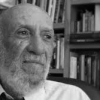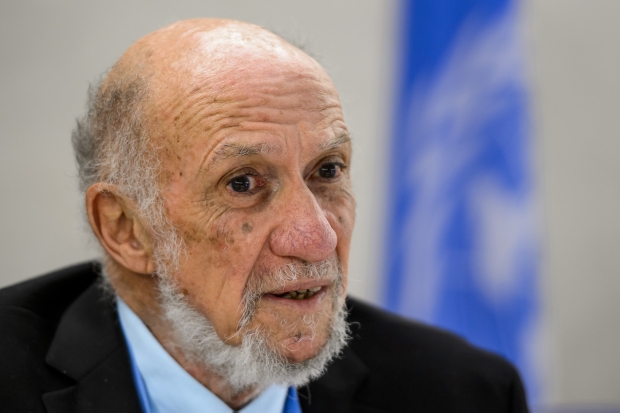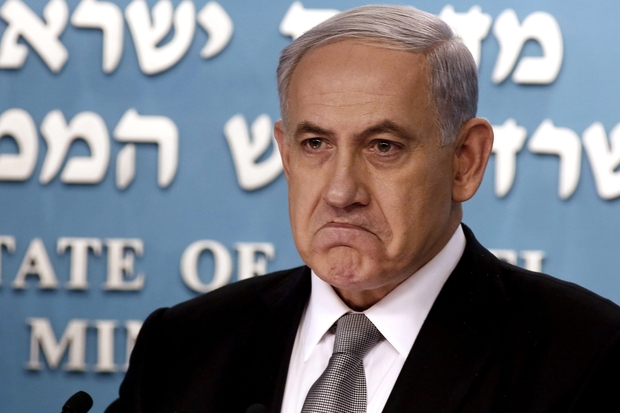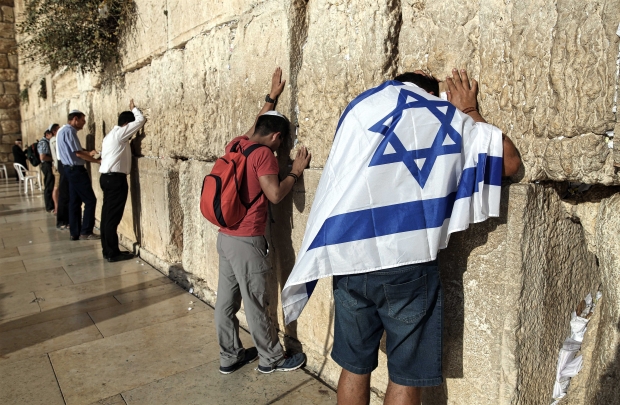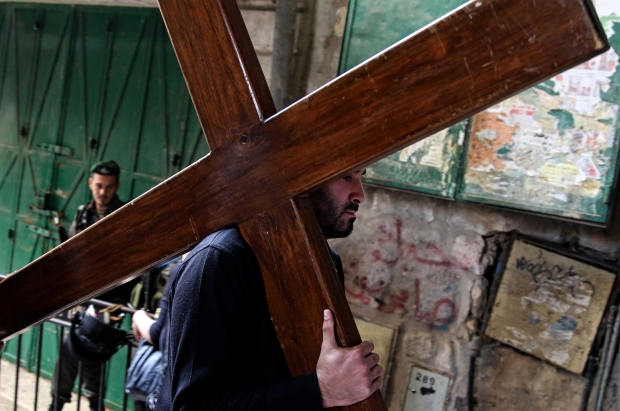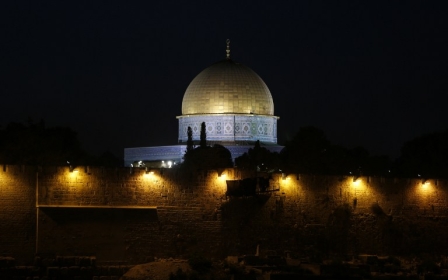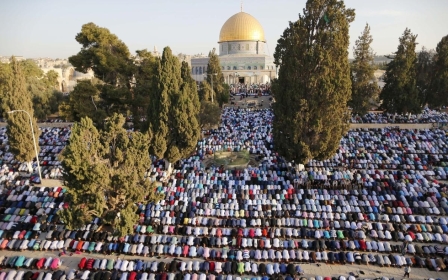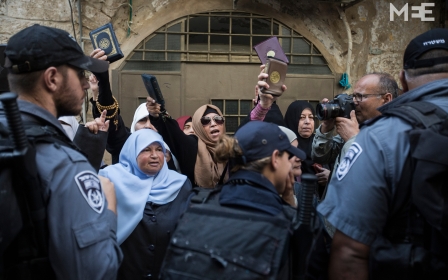UNESCO and Jerusalem: Why Israel is angered by sacred site resolutions
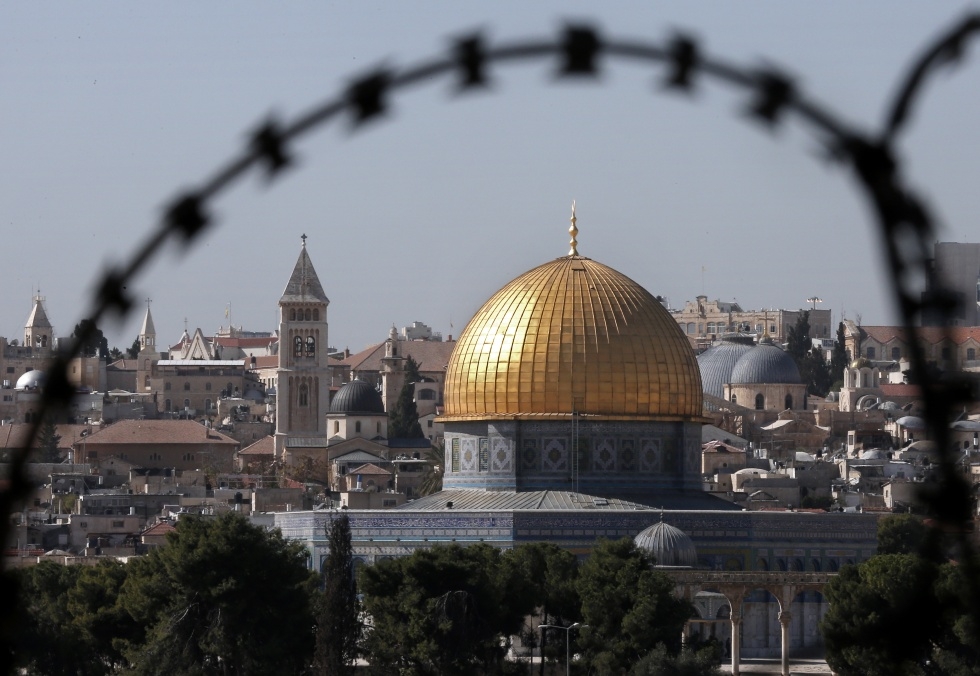
There is a fiery confrontation again between Israel and UNESCO, whose actions often touch the raw nerves of Western political sensibilities.
This time, the tensions come in response to resolutions adopted last month that are highly critical of Israel’s protection of sacred and cultural heritage sites in Jerusalem.
The main UNESCO resolution “deeply deplores” Israel’s failure to stop a series of excavations and related activities in East Jerusalem. It declares that these are harming Islamic sites in Jerusalem and, above all, complains about Israel’s interference with worship and serenity at the Al Aqsa mosque.
The resolutions also criticise Israel’s general failure to cooperate with UNESCO’s cultural and religious conservation work in Jerusalem, especially in the Old City - even to the point of refusing visas to UN officials seeking to carry out their duties.
Of course, not far in the background is Israel’s hostility toward UNESCO. It has been pronounced ever since 2011 when Palestine was admitted as a member state despite the vigorous objections of Israel, the US and several European countries.
Unlike the Security Council, where the US can singlehandedly block full UN membership, there is no veto in either the General Assembly or in UN specialised agencies.
Israel has refused all cooperation with UNESCO ever since Palestine gained membership, which presupposes that Palestine now qualifies as a state. Obligingly, the US has followed suit by withholding its annual contributions ever since - a hefty 22 percent of the UNESCO budget.
What Israeli policy is doing to historic sites
This latest initiative raises substantive issues high on the UNESCO agenda. It contrasts with the earlier status fight about admission to the agency, which concerned whether or not Palestine qualifies as a state entitled to membership.
Israel argues that UNESCO is aligning itself with a sinister Arab effort to minimise, or even erase, Jewish historic and religious connections with Jerusalem, specifically the area around Al Aqsa Mosque and the nearby Noble Sanctuary.
Israel was correct in asserting that the Temple Mount and Western Wall are the most sacred of all Jewish holy places. But it was somewhat invidious, and not really relevant, to add that Al Aqsa ranked third in the Islamic canon, behind Mecca and Medina, and so implicitly had less of a claim on UNESCO’s protection if claims clashed.
Israel’s politicians insisted that to approach UNESCO’s role in Jerusalem in such an allegedly partisan manner was deeply offensive. Prime minister Benjamin Netanyahu, never at a loss for invective, put his objection this way: “Saying that Israel doesn’t have a connection to the Temple Mount and the Western Wall is like saying the Chinese don’t have a connection to the Great Wall.” He went on: “Through this absurd decision, UNESCO has lost the little bit of legitimacy that it has.”
Let’s be clear. The UNESCO resolutions do not deny Jewish connections with the holy sites of Jerusalem: it just failed to mention them by name. There was no “absurd decision” as the resolutions were, above all, a fully legitimate, even overdue, call to Israel to perform its proper role of protecting Islamic sites as the occupying power. This is in accordance with the law as well as in the interest of cultural preservation.
From this perspective, it is not relevant to mention, much less criticise, Israel’s protection of Jewish sites as they were being fully protected, perhaps even over-protected or allowed to encroach on Islamic sites.
Jordan, among the several Arab sponsors, praised UNESCO’s “historic decision” as supportive of the very genuine struggle to preserve the status quo in Jerusalem in the face of Israeli efforts to create as much of a Jewish city as possible.
In recent years, there have been several reasons for concern about Israel’s effort to administer the holy sites in Jerusalem, especially Al-Aqsa. Such an evenhanded role conflicted with Israel’s preoccupation with promoting the primacy of Jewish traditions and memories, seemingly at the expense of Muslim and even Christian concerns.
There has been a series of violent encounters at Al Aqsa during several recent religious holidays. This much-beloved mosque was increasingly endangered as a serene place of worship by Israeli policies and practices in recent years.
Israel has, in the past, been severely criticised for its failure to fulfill its legal responsibilities with respect to holy sites in Jerusalem as the "Occupying Power". It was specifically charged with denying access to Muslim worshippers and not taking adequate steps to curb the campaign of settler extremists to assert aggressively Jewish claims in the mosque area leading to violent encounters.
Where the resolution went wrong
Overall, it would seem that there are two kinds of understandable reactions to this latest UNESCO initiative. It was entirely appropriate for UNESCO members and the organisation to complain about Israel’s failures to uphold its several responsibilities with respect to holy and heritage sites throughout Jerusalem.
It is one more illustration of Israel’s pattern of defiance when it comes to discharging its obligations as set forth in the Geneva Conventions and other international treaties. In these circumstances, it was appropriate for UNESCO to act, even with a sense of urgency.
At the same time, it was rather inappropriate for the resolution to avoid an explicit acknowledgment of the Jewish connections to Temple Mount and the Western Wall. There was no good reason for such an omission.
These wider politics also led Irina Bokova, director general of UNESCO, to join Israel, the US, and some European states in condemning the resolution, calling it an irresponsible incitement of violence, swallowing Israel’s bait to place all blame on the provocation and not paying attention at all to the genuine substantive issues that lie at the heart of UNESCO’s mission.
This unwillingness to mention both the Jewish and Arab names for the holy sites in Jerusalem had the dysfunctional effect of shifting attention away from the legitimate concerns of Palestinians and others about the overall failure of Israel to uphold its responsibilities in Jerusalem
This unwillingness to mention both the Jewish and Arab names for the holy sites in Jerusalem had the dysfunctional effect of shifting attention away from the legitimate concerns of Palestinians and others about the overall failure of Israel to uphold its responsibilities in Jerusalem, which have included a variety of efforts to Judaize the city by stages.
These unacceptable occupation policies verge on ethnic cleansing, with a focus on undermining the Palestinian presence in relation to religious and cultural claims, residence rights, building permits and family reunification.
Why Palestine is playing the symbolic chessboard
Thus, Israeli failures to carry out the legal responsibilities associated with being an Occupying Power with respect to non-Jewish holy and cultural heritage sites should be understood as an inflammatory implementation of Israel’s unlawful annexation of Jerusalem.
It is possible that this question of acknowledgment might not have avoided Israel’s condemnation of UNESCO’s initiative. It seems likely that Israel was enraged by this successful move by Palestine to sidestep Israel’s attempt to oppose any Palestinian effort to gain legitimacy and attention for its statehood claims.
And it should be appreciated that Palestine has resorted to this symbolic chessboard of UN legitimisation only after 20 years of frustration with Oslo diplomacy.
- Richard Falk is an international law and international relations scholar who taught at Princeton University for 40 years. In 2008 he was also appointed by the UN to serve a six-year term as the Special Rapporteur on Palestinian human rights.
The views expressed in this article belong to the author and do not necessarily reflect the editorial policy of Middle East Eye.
Photo: The Al Asqua mosque, picture here in 2014, has been a source of tension between Israel and Palestinians (AFP)
New MEE newsletter: Jerusalem Dispatch
Sign up to get the latest insights and analysis on Israel-Palestine, alongside Turkey Unpacked and other MEE newsletters
Middle East Eye delivers independent and unrivalled coverage and analysis of the Middle East, North Africa and beyond. To learn more about republishing this content and the associated fees, please fill out this form. More about MEE can be found here.


